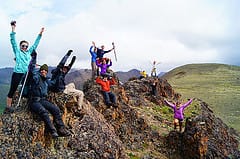As the pace of change continues at epic speed, I have realized that I may not have the opportunity to teach my 7 year old to drive when he turns 16. Sure I am jumping the gun a bit …but with the Google autonomous (driverless car) on the horizon, it looks like the computer will do the driving and Charlie will be able to multi-task on his electronic devices while his “car” gets him safely to whatever destination he keys in. Having already successfully driven 300,000 accident free miles, and now legal in California, Nevada and Florida, the autonomous car, I have every confidence, will have fewer accidents than the vast majority of 16-year old drivers.
For a parent obsessed with safety, the autonomous car initially sounds like a good idea. Learning to drive in the big cities is a lot scarier today than it was when I learned to drive in Baltimore in 1976. Knowing that motor vehicle accidents are the second leading cause of teen deaths, leaving the driving and navigation to Google has its pluses. And a Google car might actually be welcomed by many urban kids… Data suggests that urban kids are less enthusiastic about learning to drive, are getting licenses later in life and are using public transportation more frequently than did their peers a decade ago. While the car used to be the quintessential element of a teen’s identity and the driver’s license the ticket to freedom, social media and internet connected phones have made the car already passé in some circles. And if we can eliminate most of the 38,000 motor vehicle fatalities a year, let alone thousands of injuries, will it be worth giving up driving?
Maybe driving a car will be to my son what using a slide rule was for me. I remember being forced to purchase a slide rule, (all the while having a calculator in my other hand) as my teacher insisted that knowing how a slide rule worked was essential to succeed in the world. Well, I never used that slide rule, and while I certainly respect someone who can decipher one, I haven’t felt that a slide-rule-free-life has limited me or my potential. I can’t imagine teenagers feeling the same way about cars, but you never know.
Am I wrong to feel a sense of sadness that my son will miss the opportunity to improve his judgment and sense of place through learning how to drive? I’ll need to make sure I can replace the great life lessons and this coming of age experience with something equally relevant. When kids grew up with DVD players in the back seat, they were spared from endless hours of Auto Bingo, but they also lost a sense of how places were connected. While GPS and mapping software has been a lifesaver more times than I care to admit, when one relies solely on a GPS, to get where you are going, you lose your sense of place and knowledge of the surroundings. And if you lose your sense of place, do other people become less important? If you can let your car do the driving and your social media and digital assistant do the talking; do we end up being more isolated? Is driving a car just another mundane task that can be eliminated by technology in order to free us up to do more important things,, like socializing with friends or learning something new? Or will we use the time we save to play Fantasy Football, Solitaire or watch reruns of The Voice, instead?
It’s not that I think the Google car is a bad idea. I just want to find a way to replace the essential elements of judgment, maturity and responsibility that I feel will be lost through automation. As the world is changing, so are kids. I’ve seen it myself in my 35 years in this field. Kids have never been intellectually stronger than they are today, but, they also now have fewer hands on and common sense skills than did kids even ten years ago. Adolescence is being pushed back into late teens or even twenties as kids are assuming real responsibility later in life. The Google car will certainly enable this trend to continue.
If we believe author, Paul Tough in How Children Succeed, that character and grit are more important to future success than cognitive skills, shouldn’t all of us, as parents be searching for opportunities that stretch our children and build character rather than letting technology help our kids take the easier way out?
Technology offers many benefits that we embrace. We just understand that with most benefits come costs. The more immersed we get in technology, the more we need to intelligently find ways to realize what we may be losing and figure out how to replace it. I think Adventure Treks is one of several ways to intentionally counter the negative effects of the technologies that can stunt our kids’ growth.
The Adventure Treks experience builds responsibility, judgment, maturity, hands on skills and common sense. Perhaps this is why our AT students practically “glow” at the end of their summer together. In a technology free environment our kids feel truly alive. Although the AT experience could be considered “old school”, it just might be more relevant for today’s teenager than ever before. We actually look at and depend on maps. We travel on foot and encounter obstacles that a GPS can’t resolve. We give teenagers the ability to become more self-sufficient, assess risk and face natural consequences, all while communicating face to face! Things are not always comfortable or easy, but they are always rewarding!
 None of us can stop the effects of change, nor would we want to, but it is nice to have allies to help raise our kids in these uncertain times.
None of us can stop the effects of change, nor would we want to, but it is nice to have allies to help raise our kids in these uncertain times.
The Google car probably won’t make it to market in the next few years. But maybe I should start teaching Charlie to drive now, in case by the time he’s 16, the opportunity is no longer there!
“Happiness comes from the capacity to feel deeply, to enjoy simply, to think freely, to risk life, and to be needed.” – Storm Jameson
Happy 2014 from all of us at Adventure Treks!











